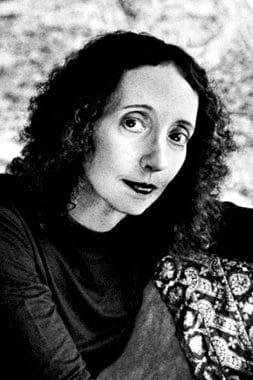Joyce Carol Oates takes the audience on a dreamlike, philosophical journey as she discusses the origins of art and stories. She poses several hypothetical questions, touching on the purpose of human existence and the reasoning behind our desire to create art. Oates explores these questions by tracing the evolution of the writer: the writer as a child, the writer in school, and so on. She is fascinated with how people progress with the craft of writing and how they contribute to the evolution of literature.
Joyce Carol Oates is a recipient of the National Medal of Humanities, the National Book Critics Circle Ivan Sandrof Lifetime Achievement Award, the National Book Award, and the PEN/Malamud Award for Excellence in Short Fiction, and has been nominated for the Pulitzer Prize. She has written some of the most enduring fiction of our time, including We Were the Mulvaneys; Blonde, which was nominated for the National Book Award; and the New York Times bestseller, The Accursed. She is the Roger S. Berlind Distinguished Professor of the Humanities at Princeton University and has been a member of the American Academy of Arts and Letters since 1978. (source: HarperCollins)
Literature is a culture, not a cottage activity. It’s a mysterious evolutionary process, where all participate in the evolution of culture. We don’t know why . . . our species does this—it’s one of the qualities of our species.”
“There’s nothing wrong with being normal, but nobody wants to be average.”
“All truth is illuminating and helpful. No truth should be paralyzing.”



